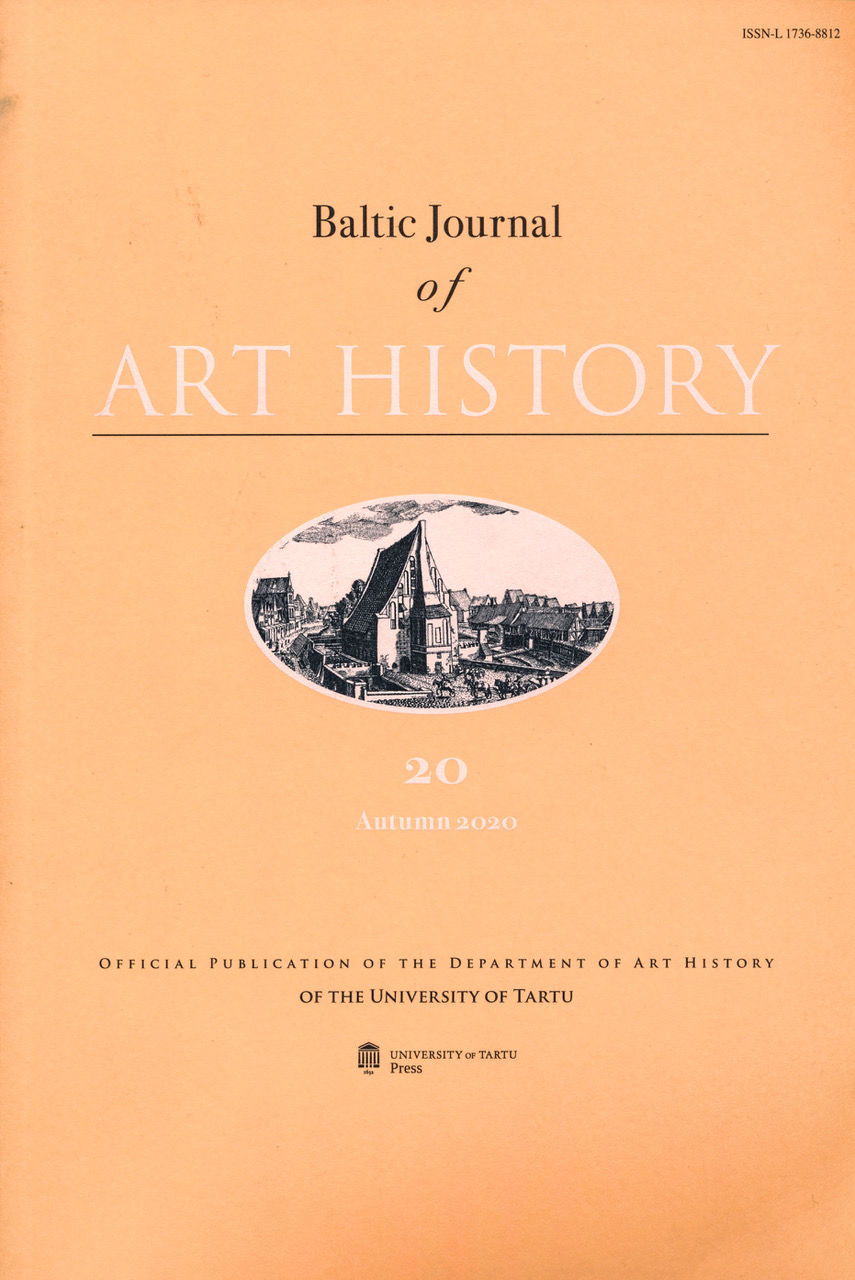Three Sources of Michael Johann von der Borch’s Poem “The Sentimental Park of Varakļāni Palace”
DOI:
https://doi.org/10.12697/BJAH.2020.20.04Keywords:
Michael Johann von der Borch, Sentimentalism, Romanticism, emblematic, landscape, park, allegoryAbstract
History permits us to trace so-called Polish Inflanty, in the territory
of the former Kingdom of Poland and Lithuania, to the contemporary
Republic of Latvia. In this case we are particularly interested in the
estate of Warkland (Warklany, Varakļāni). The ensemble of manor
and park is typical for large estates in Eastern Europe, including a
village and its infrastructure and a separate manor and park as a
spatial, architectural, botanical and social entity.
Originating from Baltic-German nobility, ‘Polonised’ count
Michael Johann von der Borch-Lubeschitz und Borchhoff (1753–
1810) was the son of a Chancellor of Poland and Lithuania. He was
a member of several academies of science, in Siena, Dijon and Lion,
and penfriend of Voltaire and academicians in Russia and France.
After researching the mineralogy of Italy, Sicily, France, Germany,
England, the Netherlands and Switzerland M. J. von der Borch left
for his estate in Varakļāni, the Polonised part of eastern Livonia,
called Polish Inflanty. At this time he also composed literary works
and poems, among which is one remarkable piece of didactic and
emblematic content “The Sentimental Park of Varakļāni Palace” (Jardin
sentimental du château de Warkland dans le Comté de Borch en Russie
Blanche, 1795). This poem illustrates in a passionate and classical
way an emblematic approach to contemporary political structures,
and the goals of education in general. In Jardin sentimental, which
is a theoretical and didactic manual, Borsch describes, through the
metaphor of the estate park of Warkland, the route of an imaginative
hero, full of expectation and temptation.
The main subject of the report is an analysis of the text of the
poem contextualised by history and contrasted with evidence from
contemporary Warkland.

